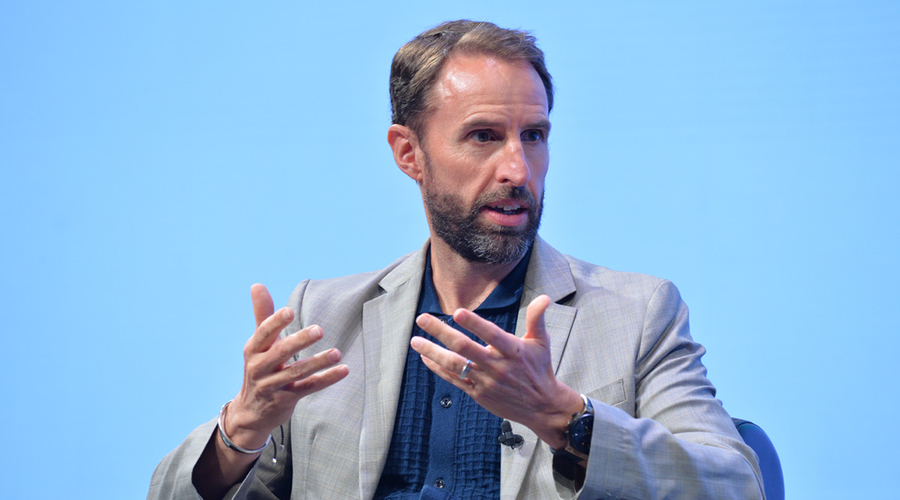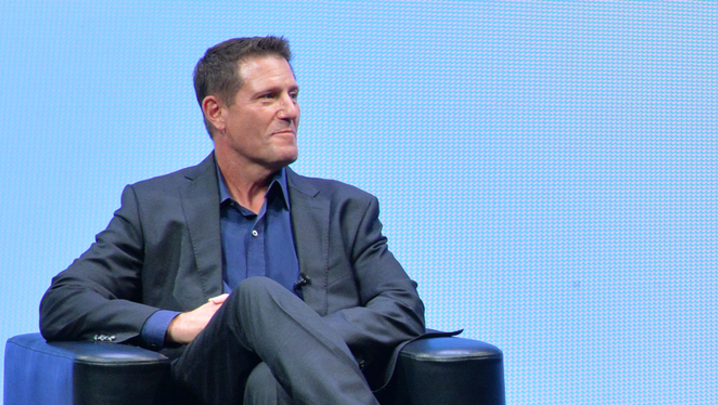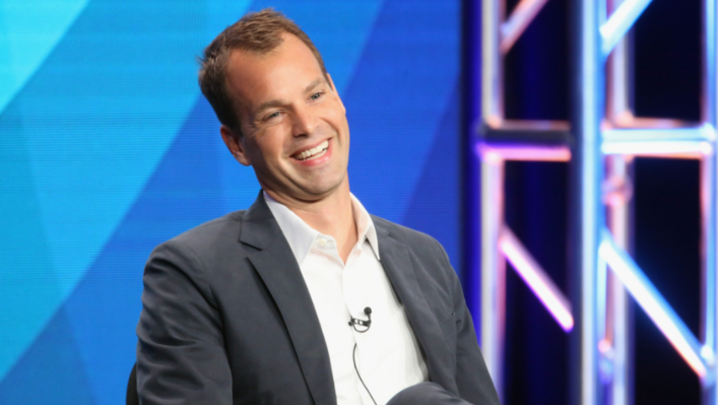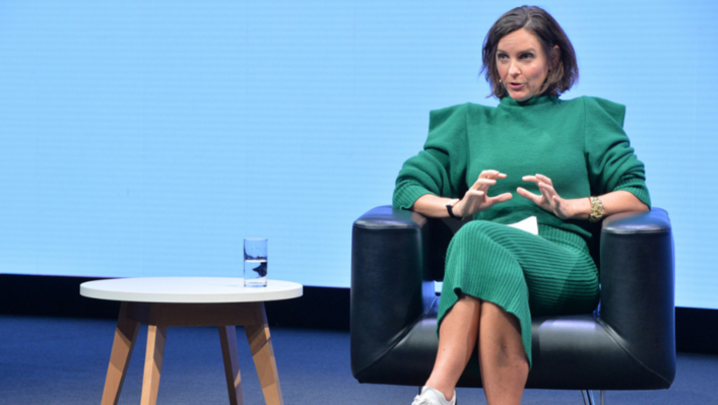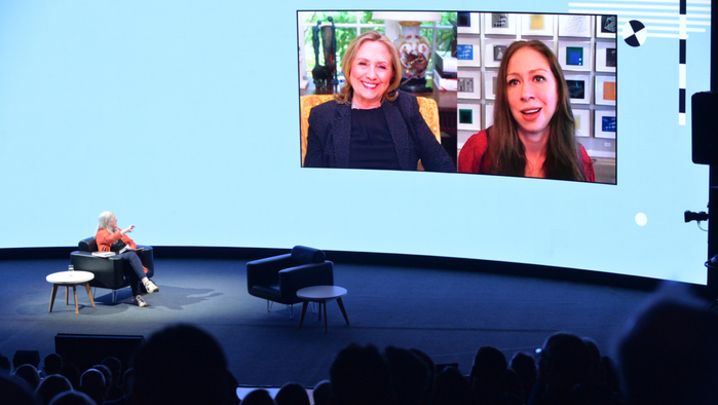Gareth Southgate explains why being a macho boss is anathema to managing the England men’s team.
In recent years, few, if any, leaders in the UK have made such an impact as Gareth Southgate, the first manager of the England men’s football team to reach the final of an international competition since 1966.
Introducing him at Cambridge, Clare Balding described Southgate as one of the great leaders, not just in sports but in any field, including business, politics and science: “He leads with dignity, empathy and with patience – qualities that aren’t often associated with men’s football.” The strength of applause that greeted his appearance on the Convention stage said it all.
The audience was shown a clip of the documentary he made for YouTube prior to this year’s Euros tournament, Raise Your Game, where he was joined by YouTube creators such as Chris MD, SV2, Yung Filly and StuntPegg.
Together, they explored how issues including mental health and wellbeing, racial inclusion and gender inequality, were being addressed in football. These themes resurfaced in a compelling, 30-minute conversation in which this deceptively low-key man seemed to radiate a Zen-like calm.
But first, how had he got to be the leader he is today? Who were his influences? Southgate, in chronological order, listed his parents and some of the football club mangers he encountered as a player during a distinguished career that saw him win the First Division as captain of Crystal Palace, together with 57 England caps.
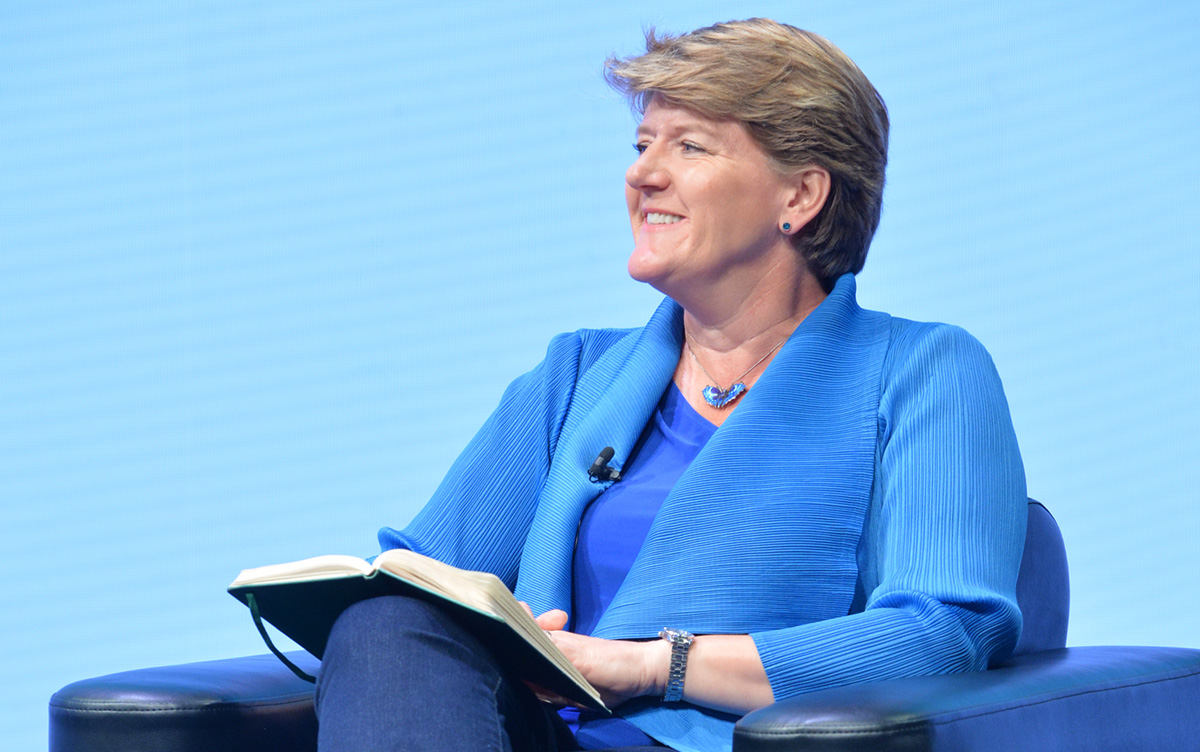
“What I’ve learnt over time is that there is more than one way of doing this,” he told the RTS. “For me, the most important thing is to be authentic to myself and the way I am as a person. People will either come with us or they won’t.”
He added: “The way that I manage is probably a little bit more acceptable than it might have been in the past, certainly in our sport.… We’ve moved from a time in our lives when the boss was the boss. In whatever industry it was, he banged the desk, he shouted, and you jumped. You were fearful of losing your job. It wasn’t a culture of, ‘We’re all trying to work together to achieve a common goal’.”
Recalling how, overnight, he went from being a player at Middlesbrough to managing the club he said it was telling to see how the power dynamic shifted as people started to treat him differently.
The England manager, whose speech avoids the clichés of so many football leaders, emphasised how, off the pitch, he and the players and their staff had achieved a cultural change. Wearing the England shirt was now no longer regarded as something full of jeopardy. Southgate was appointed the England manager in 2016, leading to a revival in the team’s fortunes that saw the national side reach the 2018 World Cup semi-final.
Unfortunately, England’s remarkable achievement in reaching the finals of the Euros this summer would be remembered as much for the racist abuse of the three failed penalty takers as for the team’s dramatically improving performances as the tournament progressed. How did he deal with that situation?
“I’d lived through missing a penalty in a major tournament [the semi-final of Euro 1996], so I knew that element. It never crossed my mind that the three boys who missed were black or of mixed heritage. But, very quickly, when I got back to the dressing room our media comms team explained the scenario.
“Players were talking to their families about what had happened inside and outside the stadium. From this incredible month, where it felt like we’d brought people together… players who’d given so much were being abused. We were seeing the very worst of our country, having been so close to a moment where probably none of that would have happened.… To see our country in that light when the rest of the world was looking at us said to me: ‘We’ve got a lot of work to do.’”
On the plus side, “the counter reaction and the wave of support” for the three penalty takers “was heartening”.
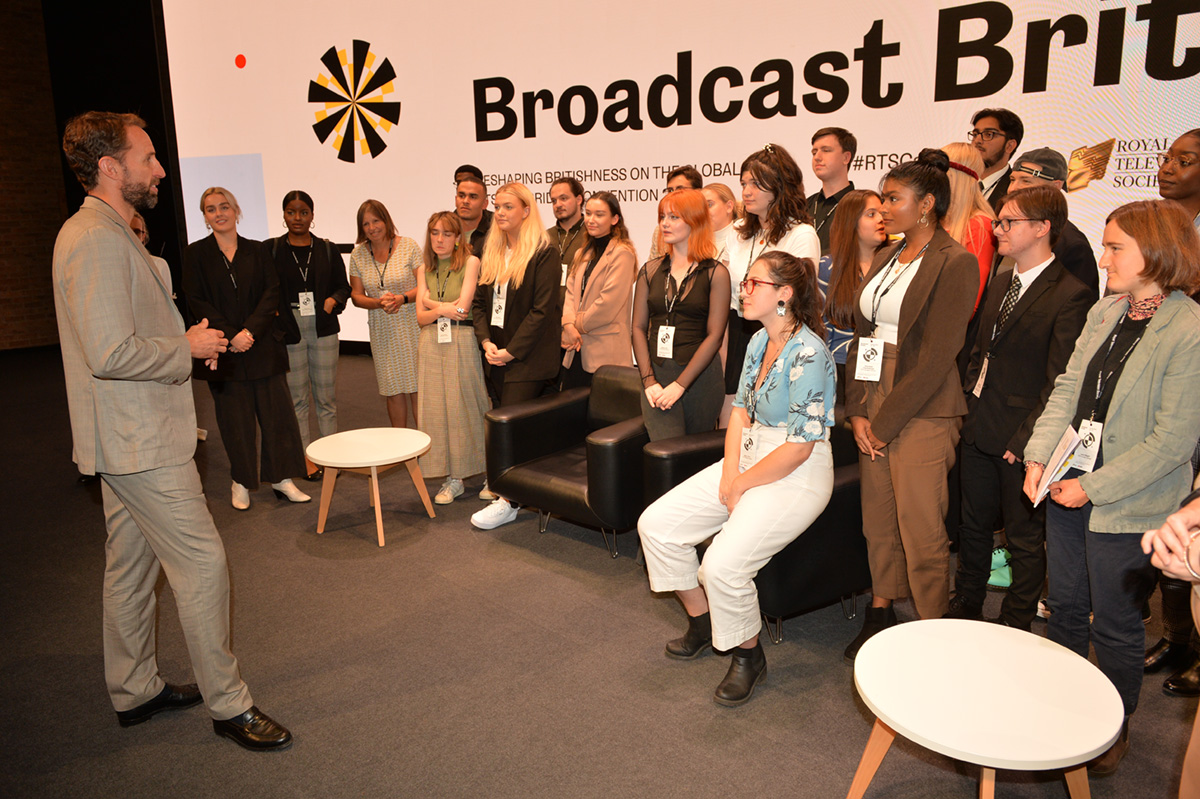
(Credit: Richard Kendal)
How much did he have to help his young players to find their voice? “They’re all different. That sounds obvious but, when I grew up playing, every manager wanted to treat every player the same. That’s not realistic.
“Everyone who’s a boss knows that every person who works for you has their own story, their own background, their own preferences for how they want to be treated, what they want to achieve. We have a range of lads who don’t want any profile off the field, who keep themselves to themselves, to guys that are comfortable and able to speak from a position of strength and are confident in the messaging they give.”
Southgate cited players such as Marcus Rashford, whose successful anti-poverty campaigns, such as extending free school meals during school holidays at the height of the pandemic, made such a difference. “We’ve encouraged that, but I think those boys would have done it anyway,” he said.
Powerful characters they may be, but it was important to weave every individual into a team prepared – as the England team required during the Euros – to sacrifice themselves for the group. “We had 26 players in the summer, so every time I named a team, 60% of the squad were unhappy,” noted Southgate. “If those who aren’t selected choose to go in a certain direction with their emotions, we’ve got no chance of succeeding as a group.”
He continued: “Every time you make a decision with a team, the rest of the team are looking at how that decision plays out.… If I say to the team, ‘We want you to play with freedom and, if you make mistakes, no problem’, and [then] I’m like Basil Fawlty on the touchline, bouncing up and down with my head in my hands, I’ve got 11 subs behind me and the first thing they’ll be saying afterwards in the dressing room is, ‘You’ll never believe what the manager was doing’.”
As England manager, Southgate spends only a limited amount of time with his players, who spend most of their time playing for their clubs. It’s important, nevertheless, for him to know what is going on in their lives. Then he is able identify which, if any, players are experiencing difficulties that could affect their wellbeing.
He recalled visiting the horse-racing trainer Aidan O’Brien, who told him that, before he saw his horses every morning, he always said good morning to all the stable lads, all of whom he knew by name. “He said that, ‘if they’re in a bad frame of mind, the feedback they give me about the horse might not be accurate’. I thought that was fascinating.
‘The most important thing is to be authentic to myself’
“When you’ve worked with a player long enough, you can tell when something is wrong.… To be able to get the best out of each player, the more information we have, the better.”
When he needs support, who counsels him? “I do have people who I would speak with. There’s a psychologist who works with the team. But that dynamic is a little bit more difficult because, indirectly, I’m his boss. I can’t necessarily open up to him about all the things that are going on because a lot of that is confidential.”
He recalled how, as part of a course run by UK Sport, he had worked with a female life coach. This had given him a different perspective. Having conversations with peers such as Dave Brailsford and Eddie Jones, respectively cycling and rugby coaches, was also helpful.
Balding was intrigued that the life coach he’d worked with was a woman. This led her to ask where he thought the UK was in terms of having more women involved across different areas of football – as players, backroom staff, referees and commentators.
“Nowadays, I meet dads who proudly tell me their daughters play football. Five years ago, that didn’t happen,” said Southgate. “The profile of the national game has come from the Lionesses.… It’s far more acceptable, if that’s the right word, for girls to play now.
“That’s different to where we are in terms of diversity of staff within the game. We haven’t got that right with my team. We’ve got some women who work with the team. We have a fabulous exercise therapist, Suzanne [Scott], who brings a calmness and a different energy to the group.
“She’ll do a lot of the Pilates work or warm-ups with the players. They obviously behave differently around her. She’s older than they are. She’s got a different manner. When you’re in the intensity of competition that we are, to have somebody of that nature around is important.
“We did have Pippa [Grange], head of psychology, for two years but she’s gone on to another project. We have Emily [Webb], who’s our team manager, responsible for everything logistical. But we’ve got a staff of 40, so we’re nowhere near where we should be.”
In terms of England’s future, as he contemplated next year’s World Cup, Southgate explained that his objective was sustainable success: “We were 15th in the world [rankings]. Today, we’ve gone up to third. We’ve had a consistency of performance.… We know that those near misses and what feels like failures at the time are part of the journey to success. We’ve just seen that [with Emma Raducanu’s win] in the US Open on the back of Wimbledon.
“There’s the football part and there’s the continuing growth of the team. What they stand for and what they feel is important. Of course, we had to pick ourselves up, not only for three World Cup qualifiers [this] month, but we had to go to Hungary, where we were fearful that some of our players could be racially abused, and they were.
“With the national team, there is more at stake than just the football and we recognise that. The most heartening thing for me, has been the people who have come up to me celebrating their feeling of connection to the team, who are Muslim, Hindu, Sikh, Afro-Caribbean.
“The change in that over the last 18 months has been remarkable. I didn’t realise how disconnected we were, particularly from those communities. That’s what this group of players has done. They’ve been relatable to.
“If we’re talking about media, how have we got that message across? Very often, they’ve used their own [social media] channels.
“It hasn’t just been sit-down interviews with print journalists who, frankly, are 90% white guys over 50. That is the reality of the environment we used to operate in. Nowadays, the team put their own content out every day, so people get a different insight into the players’ personalities.”
Session Twenty: Gareth Southgate OBE, England manager, was in conversation with broadcaster and author Clare Balding. The producer was Helen Scott. Report by Steve Clarke.

